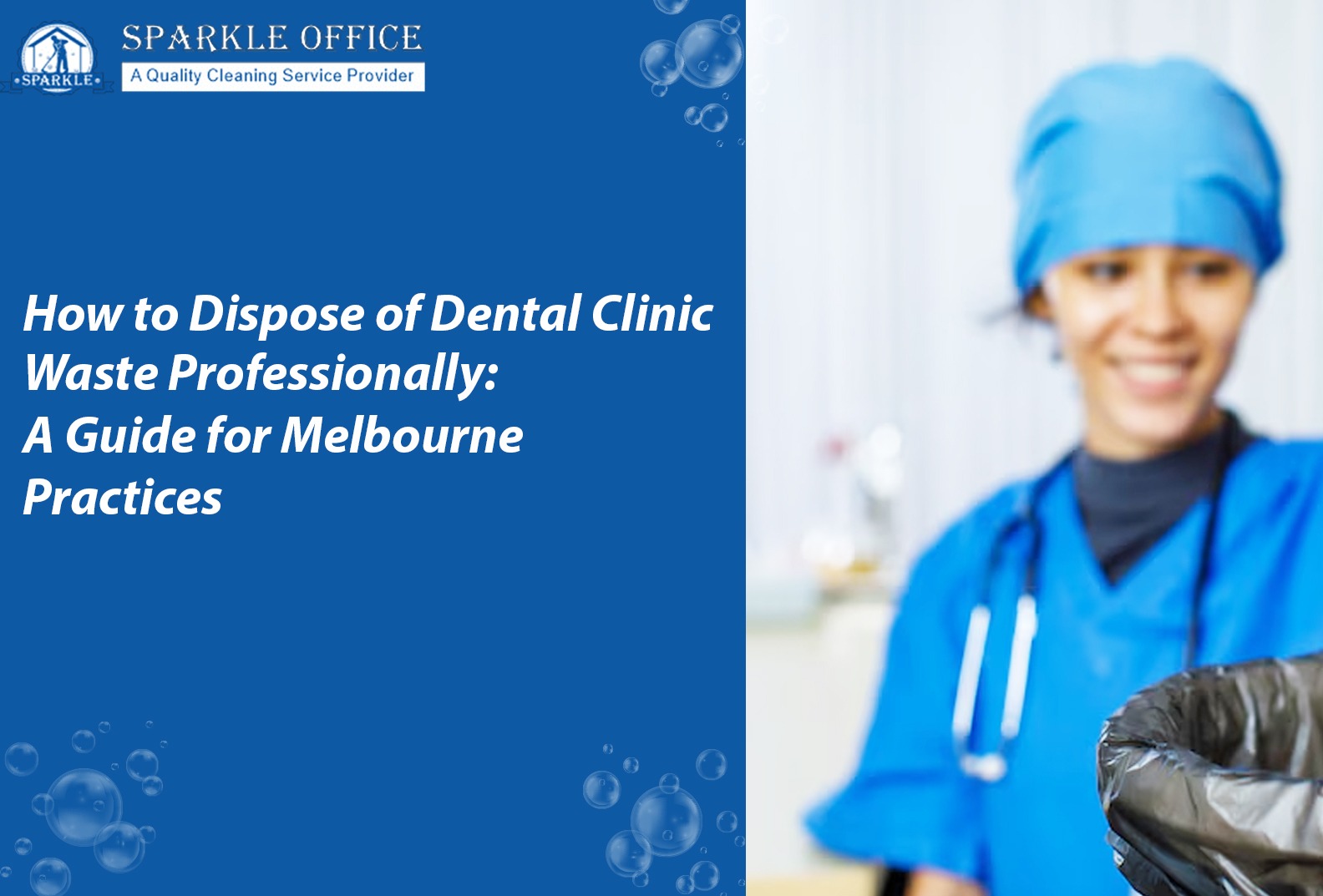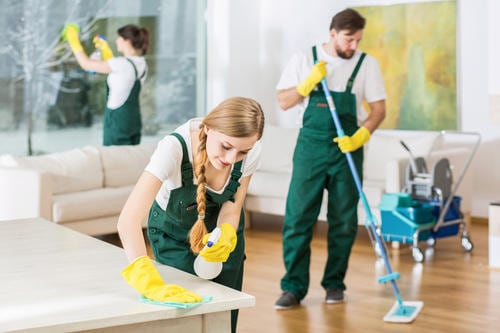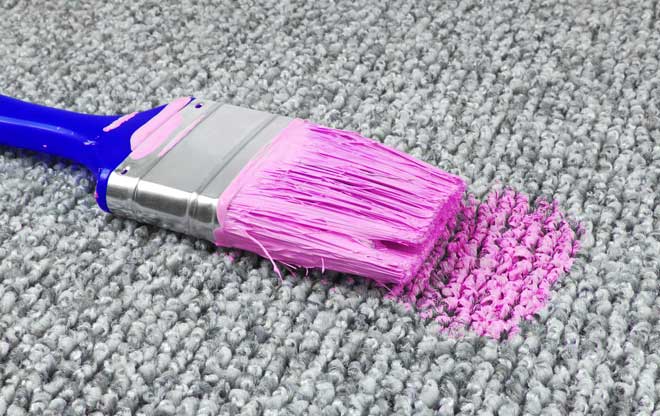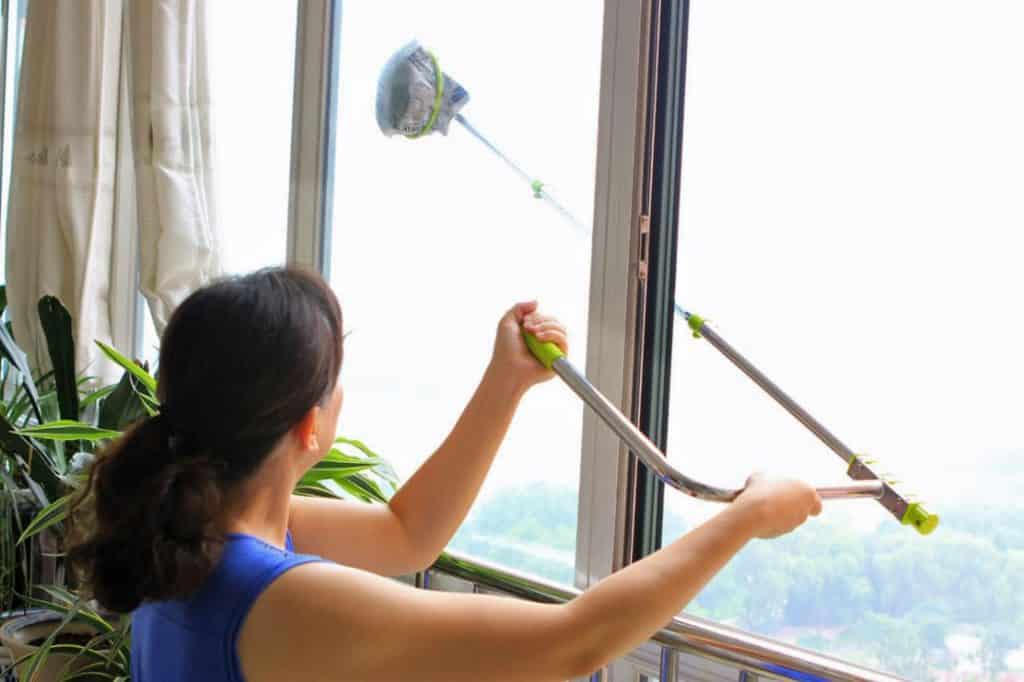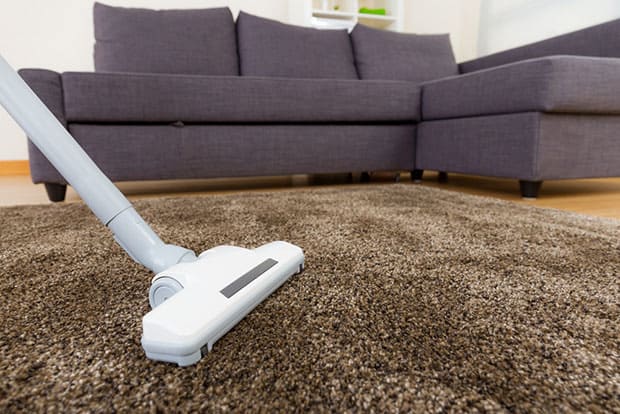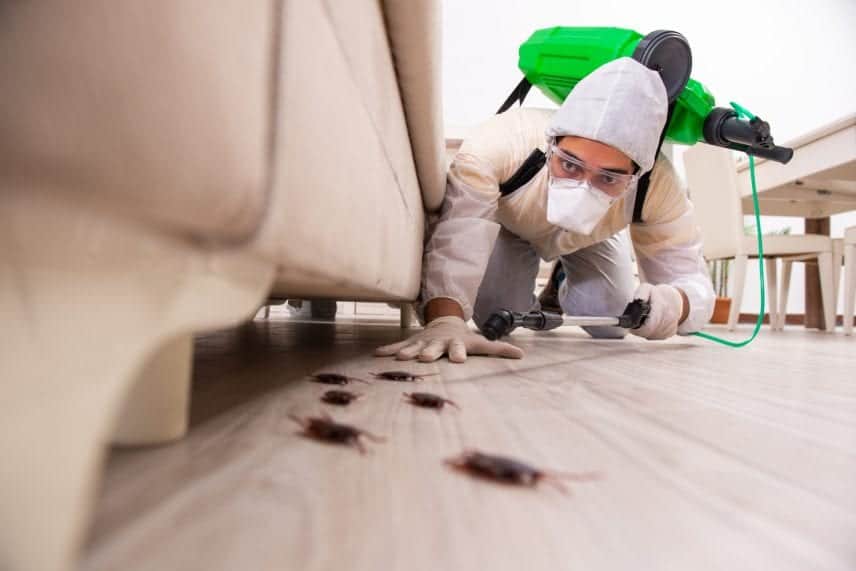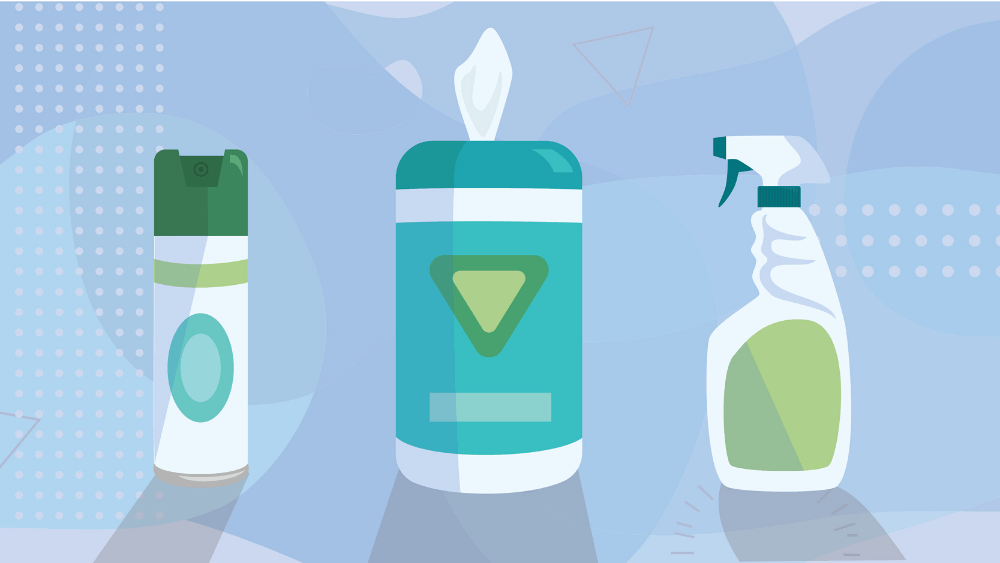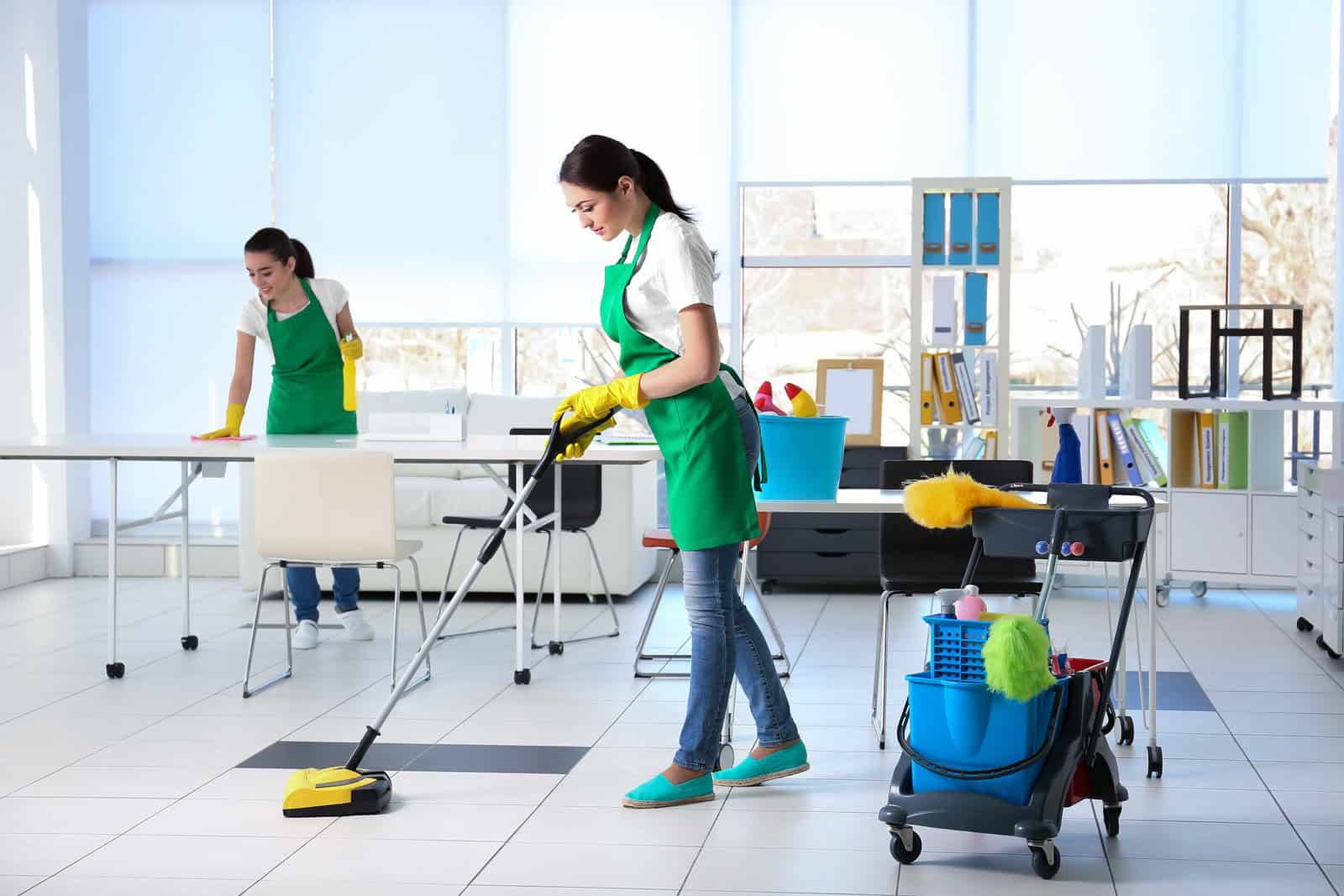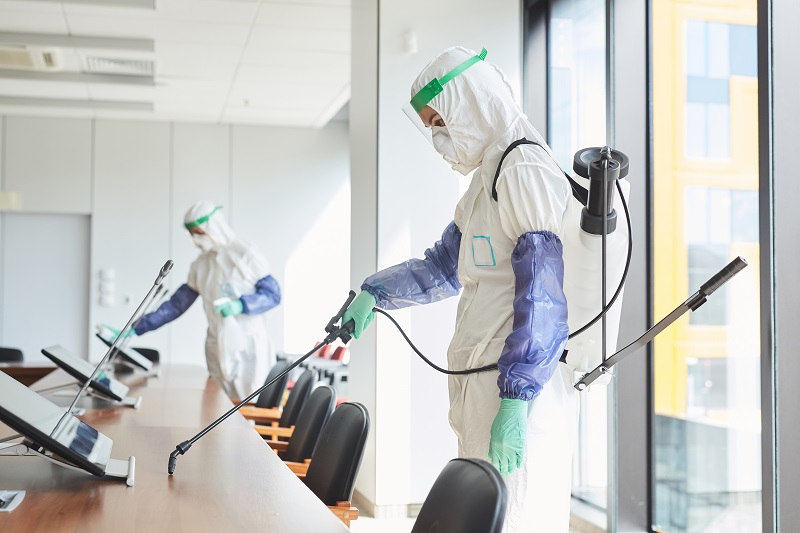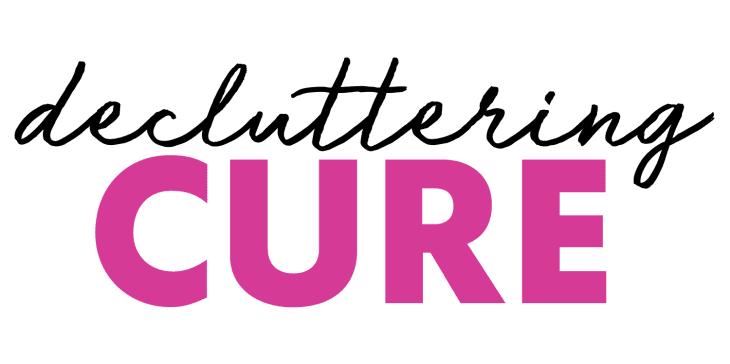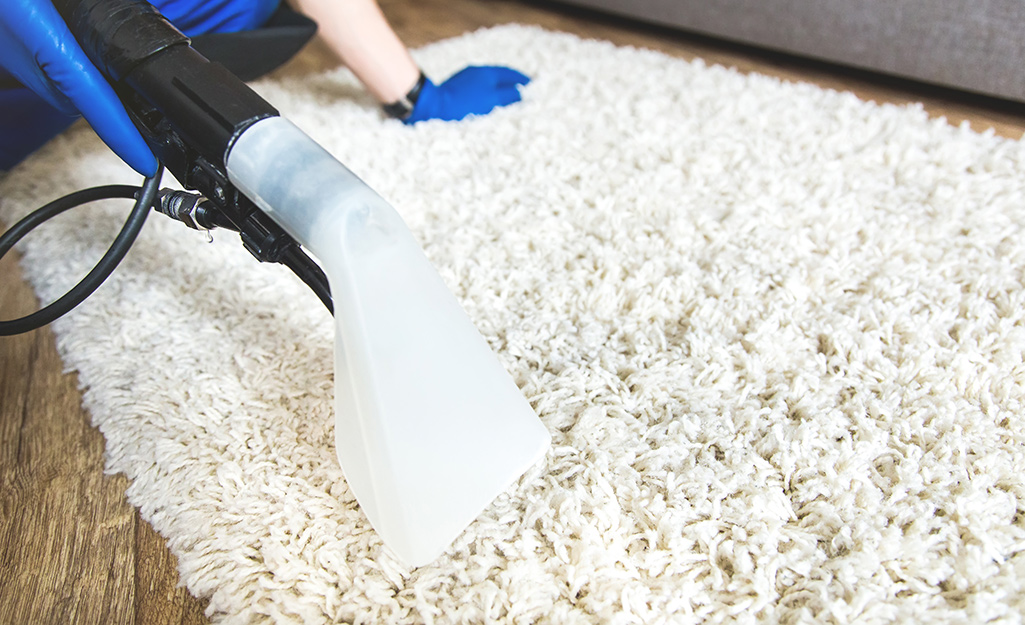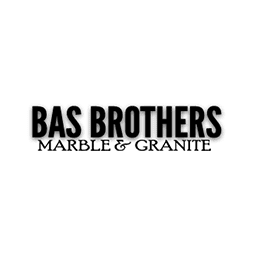03 July 2025
How to Dispose of Dental Clinic Waste Professionally: A Guide for Melbourne Practices
Running a dental clinic in Melbourne isn’t just about patient care and pristine smiles , it’s also about maintaining a safe, compliant, and hygienic workplace. One critical yet often overlooked aspect of dental practice management is proper waste disposal. Dental clinics generate various types of waste that require special handling to protect patients, staff, and the environment.
Professional dental office cleaning services in Melbourne understand the unique challenges dental clinics face when it comes to managing waste safely and legally. Here’s a closer look at how to dispose of dental clinic waste professionally — and why partnering with experienced cleaners can make all the difference.
Types of Dental Clinic Waste
Before discussing disposal methods, it’s important to understand the different categories of waste commonly generated in a dental office:
- Sharps Waste: Needles, scalpels, and other sharp instruments that can cause injury or infection.
- Infectious Waste: Materials contaminated with blood, saliva, or other bodily fluids, including gauze, cotton rolls, and PPE.
- Chemical Waste: Includes disinfectants, dental amalgam waste containing mercury, and other hazardous chemicals.
- Pharmaceutical Waste: Expired or unused medications.
- General Waste: Non-hazardous materials like office paper, packaging, and food scraps.
Each waste type has specific disposal requirements that dental clinics in Melbourne must follow under state regulations.
Safe Disposal Practices
1. Segregation at Source
Proper waste management starts with segregation. Dental staff should separate waste into color-coded, labeled bins immediately after use:
- Yellow for clinical/infectious waste
- Red for sharps
- White or blue for pharmaceutical waste
- Special containers for amalgam and mercury waste
Professional dental office cleaning services can help ensure that these systems are consistently maintained and compliant with Victorian guidelines.
2. Sharps Handling
Sharps should always be placed in puncture-resistant containers. Never attempt to recap needles or handle sharps unnecessarily. Licensed waste management companies then collect and dispose of sharps safely.
3. Amalgam and Mercury Waste
Dental amalgam contains mercury, which is hazardous to both health and the environment. Use amalgam separators to collect scrap amalgam from wastewater. Store amalgam waste in airtight, labeled containers for collection by authorized disposal services.
4. Infectious Waste
Items contaminated with blood or bodily fluids must be stored in leak-proof, biohazard-labeled bags or containers. Professional cleaners trained in dental office cleaning services handle infectious waste areas with specialized protocols and hospital-grade disinfectants to reduce infection risks.
5. Documentation and Compliance
Dental clinics must keep records of waste disposal, including manifests from licensed disposal contractors. Proper documentation proves compliance with Victorian Environment Protection Authority (EPA) regulations and ensures clinics avoid legal or financial penalties.
Why Work with Professional Dental Office Cleaning Services?
Hiring experienced
Running a dental clinic in Melbourne isn’t just about patient care and pristine smiles , it’s also about maintaining a safe, compliant, and hygienic workplace. One critical yet often overlooked aspect of dental practice management is proper waste disposal. Dental clinics generate various types of waste that require special handling to protect patients, staff, and the environment.
Professional dental office cleaning services in Melbourne understand the unique challenges dental clinics face when it comes to managing waste safely and legally. Here’s a closer look at how to dispose of dental clinic waste professionally — and why partnering with experienced cleaners can make all the difference.
Types of Dental Clinic Waste
Before discussing disposal methods, it’s important to understand the different categories of waste commonly generated in a dental office:
- Sharps Waste: Needles, scalpels, and other sharp instruments that can cause injury or infection.
- Infectious Waste: Materials contaminated with blood, saliva, or other bodily fluids, including gauze, cotton rolls, and PPE.
- Chemical Waste: Includes disinfectants, dental amalgam waste containing mercury, and other hazardous chemicals.
- Pharmaceutical Waste: Expired or unused medications.
- General Waste: Non-hazardous materials like office paper, packaging, and food scraps.
Each waste type has specific disposal requirements that dental clinics in Melbourne must follow under state regulations.
Safe Disposal Practices
1. Segregation at Source
Proper waste management starts with segregation. Dental staff should separate waste into color-coded, labeled bins immediately after use:
- Yellow for clinical/infectious waste
- Red for sharps
- White or blue for pharmaceutical waste
- Special containers for amalgam and mercury waste
Professional dental office cleaning services can help ensure that these systems are consistently maintained and compliant with Victorian guidelines.
2. Sharps Handling
Sharps should always be placed in puncture-resistant containers. Never attempt to recap needles or handle sharps unnecessarily. Licensed waste management companies then collect and dispose of sharps safely.
3. Amalgam and Mercury Waste
Dental amalgam contains mercury, which is hazardous to both health and the environment. Use amalgam separators to collect scrap amalgam from wastewater. Store amalgam waste in airtight, labeled containers for collection by authorized disposal services.
4. Infectious Waste
Items contaminated with blood or bodily fluids must be stored in leak-proof, biohazard-labeled bags or containers. Professional cleaners trained in dental office cleaning services handle infectious waste areas with specialized protocols and hospital-grade disinfectants to reduce infection risks.
5. Documentation and Compliance
Dental clinics must keep records of waste disposal, including manifests from licensed disposal contractors. Proper documentation proves compliance with Victorian Environment Protection Authority (EPA) regulations and ensures clinics avoid legal or financial penalties.
Why Work with Professional Dental Office Cleaning Services?
Hiring experienced dental office cleaning services near me in Melbourne offers significant advantages:
- Expertise in handling clinical waste
- Use of compliant cleaning methods and materials
- Reduced risk of infection and contamination
- Assistance with regulatory compliance and documentation
- A hygienic, reassuring environment for patients and staff
Professional cleaners don’t just keep surfaces spotless — they help protect your clinic’s reputation and ensure patient safety.
Safe and professional dental waste disposal is a legal and ethical responsibility for every Melbourne dental practice. From sharps management to handling hazardous materials, proper protocols keep your clinic safe, compliant, and environmentally responsible.
in Melbourne offers significant advantages:
- Expertise in handling clinical waste
- Use of compliant cleaning methods and materials
- Reduced risk of infection and contamination
- Assistance with regulatory compliance and documentation
- A hygienic, reassuring environment for patients and staff
Professional cleaners don’t just keep surfaces spotless — they help protect your clinic’s reputation and ensure patient safety.
Safe and professional dental waste disposal is a legal and ethical responsibility for every Melbourne dental practice. From sharps management to handling hazardous materials, proper protocols keep your clinic safe, compliant, and environmentally responsible.

